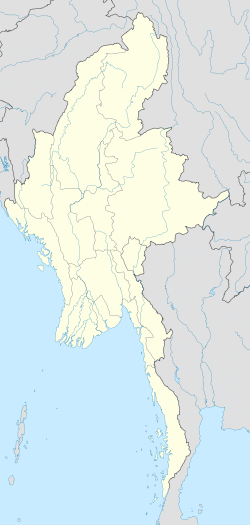This article needs additional citations for verification .(February 2024) |
Myittha Township | |
|---|---|
 Location in Kyaukse district | |
| Coordinates: 21°25′N96°8′E / 21.417°N 96.133°E | |
| Country | |
| Region | |
| District | Kyaukse District |
| Capital | Myittha |
| Time zone | UTC+6:30 (MMT) |
Myittha Township is a township of Kyaukse District in the Mandalay Region of Myanmar. [1] The capital is Myittha. Myittha Township consists of 6 wards and 227 villages.


